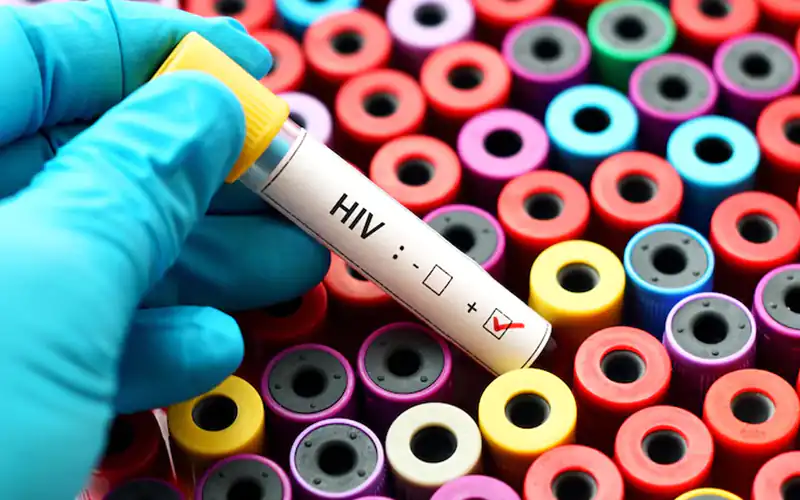The number of HIV cases in Pakistan has doubled in ten years, from 0.1 percent in 2015 to 0.2 percent in 2025 with the treatment gap in Pakistan is now a serious concern.
According to the Pakistan Economic Survey 2024–25, an estimated 350,000 to 480,000 people are now living with HIV, up from under 100,000 cases recorded in 2015.
Despite national and donor-supported programs for awareness and prevention, experts believe the rising cases show major gaps in response, especially for high-risk and vulnerable communities.
Only 76,167 people have registered for treatment, and just 53,635 are actually receiving medication. That leaves more than 400,000 HIV-positive people untreated or undiagnosed across Pakistan.
Experts say this treatment gap increases both deaths and infections. Without proper care, the virus spreads more easily, especially among injecting drug users and sexually vulnerable populations.
Data shows HIV prevalence is highest among injecting drug users in cities, reaching over 21 percent. Transgender individuals face 7.5 percent, and men who have sex with men 5.4 percent.
Female sex workers in several areas also report infection rates between 2 percent and 4 percent, pointing to clear public health failures in reaching at-risk groups.
The Common Management Unit (CMU) has launched 51 fixed and mobile health sites and used regional languages in awareness campaigns on digital platforms to improve early testing and diagnosis.
However, the survey shows Pakistan is far behind global HIV targets. Current treatment coverage is below 16 percent, compared to the UNAIDS 95-95-95 goal for testing, treatment, and viral control.
Shortages of medicines, lack of viral load testing, and weak logistics—sometimes affected by trade tensions with India—have further hurt the country’s HIV response efforts.
Experts are calling for HIV response to be added into existing health programs like maternal care, jail health, and harm reduction to avoid duplication and improve service delivery.
They also urge policy reforms, increased funding, and decriminalization of vulnerable groups so these people can safely access testing and treatment without fear or stigma.
With 480,000 people now living with HIV, Pakistan stands at a crossroads. Without stronger efforts, the country risks a deeper epidemic that could threaten national health security and global commitments.











